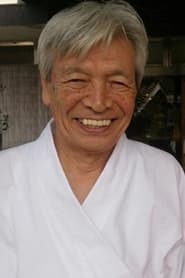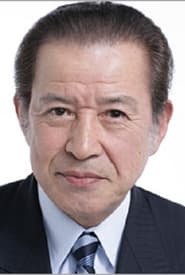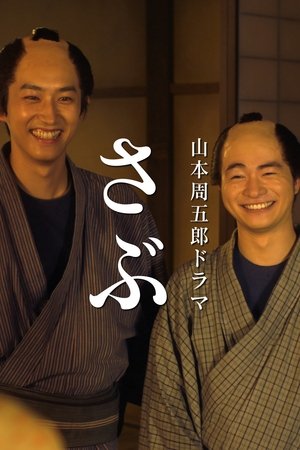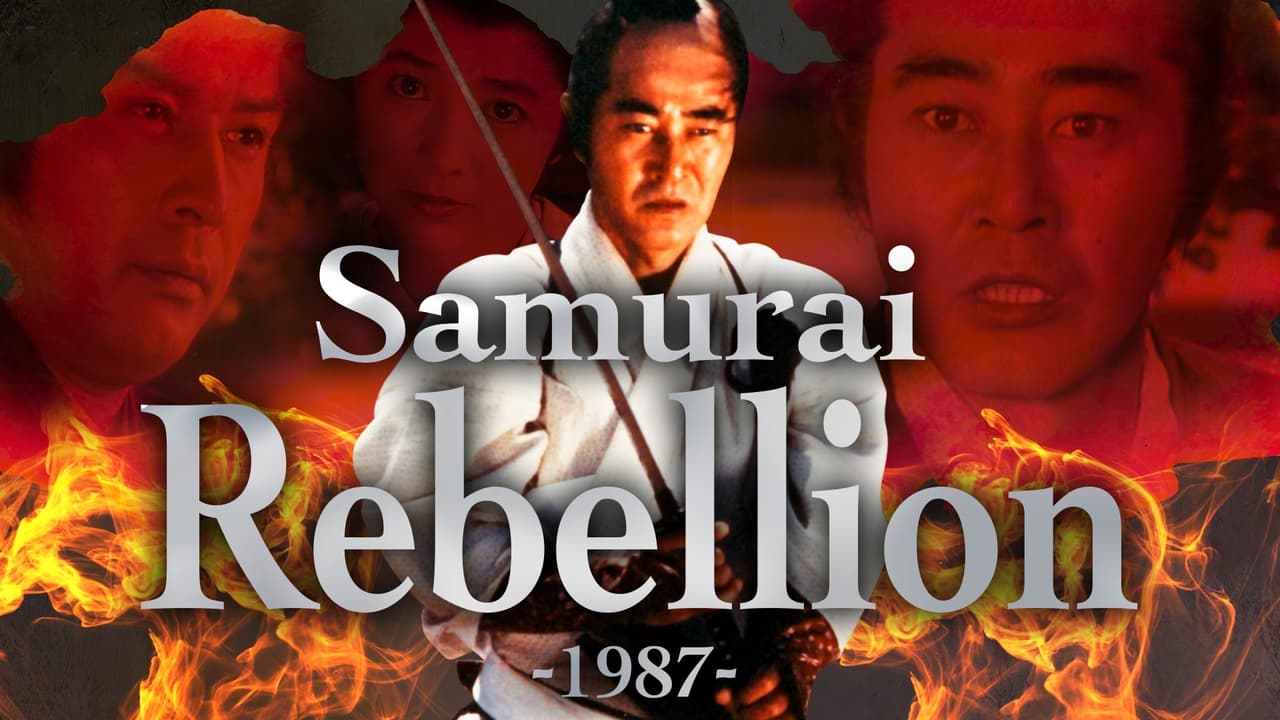
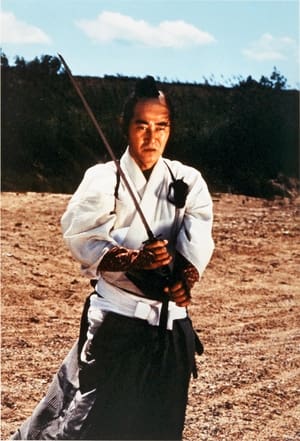
Samurai Rebellion(1987)
Echizen Fukui Domain. Futago Rokubei, who backs down even at the sight of a gecko, is called "Coward Samurai" by others. His sister Kane blames him for not having any marriage proposals. One day, the lord's martial arts instructor, Nito Kouken, kills one of the lord's attendants, Kano, and flees, leading the angry lord to issue an order to kill him. However, there is no one in the domain who can match the swordsmanship of Nito. Rokubei, in order to clear his long-standing dishonor, volunteers to be the one to kill Nito and sets out on the journey, leaving behind Kane who tries to stop him in tears.


Movie: Samurai Rebellion
Top 7 Billed Cast

あらすじ
HomePage
Overview
Echizen Fukui Domain. Futago Rokubei, who backs down even at the sight of a gecko, is called "Coward Samurai" by others. His sister Kane blames him for not having any marriage proposals. One day, the lord's martial arts instructor, Nito Kouken, kills one of the lord's attendants, Kano, and flees, leading the angry lord to issue an order to kill him. However, there is no one in the domain who can match the swordsmanship of Nito. Rokubei, in order to clear his long-standing dishonor, volunteers to be the one to kill Nito and sets out on the journey, leaving behind Kane who tries to stop him in tears.
Release Date
1987-07-02
Average
0
Rating:
0.0 startsTagline
Genres
Languages:
日本語Keywords
Similar Movies
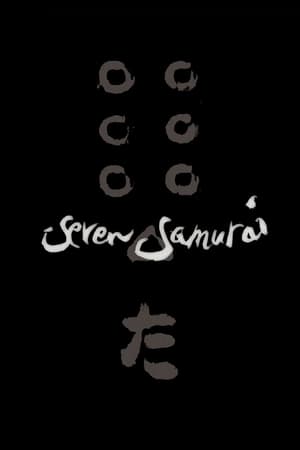 8.5
8.5Seven Samurai(ja)
A samurai answers a village's request for protection after he falls on hard times. The town needs protection from bandits, so the samurai gathers six others to help him teach the people how to defend themselves, and the villagers provide the soldiers with food.
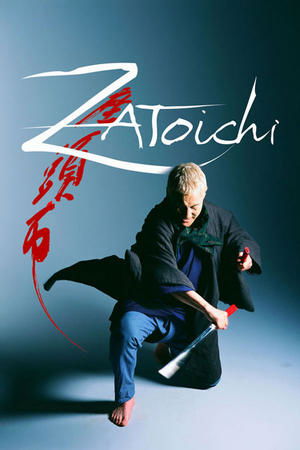 7.2
7.2Zatoichi(ja)
Blind traveler Zatoichi is a master swordsman and a masseur with a fondness for gambling on dice games. When he arrives in a village torn apart by warring gangs, he sets out to protect the townspeople.
 7.7
7.711 Rebels(ja)
When the brutal Boshin War breaks out in Japan, a group of inmates on death row unite to defend a fortress against the Imperial army.
 0.0
0.0The Tale of Genji(ja)
TV movie based on the novel "The Tale of Genji" by Murasaki Shikibu, which tells about the life of Prince Hikaru Genji, who was nicknamed "Shining" by people for his dazzling noble beauty. In 1991, to commemorate the 40th anniversary of TBS' founding, it was released with a total production value of around 1.2 billion yen and aired in two parts.
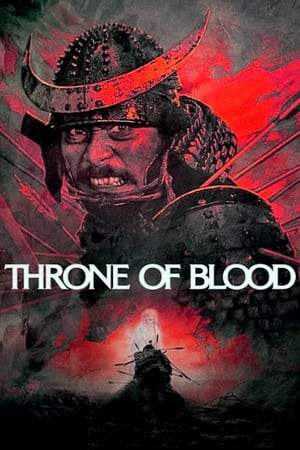 7.9
7.9Throne of Blood(ja)
Returning to their lord's castle, samurai warriors Washizu and Miki are waylaid by a spirit who predicts their futures. When the first part of the spirit's prophecy comes true, Washizu's scheming wife, Asaji, presses him to speed up the rest of the spirit's prophecy by murdering his lord and usurping his place. Director Akira Kurosawa's resetting of William Shakespeare's "Macbeth" in feudal Japan is one of his most acclaimed films.
 8.1
8.1Red Beard(ja)
Aspiring to an easy job as personal physician to a wealthy family, Noboru Yasumoto is disappointed when his first post after medical school takes him to a small country clinic under the gruff doctor Red Beard. Yasumoto rebels in numerous ways, but Red Beard proves a wise and patient teacher. He gradually introduces his student to the unglamorous side of the profession, ultimately assigning him to care for a prostitute rescued from a local brothel.
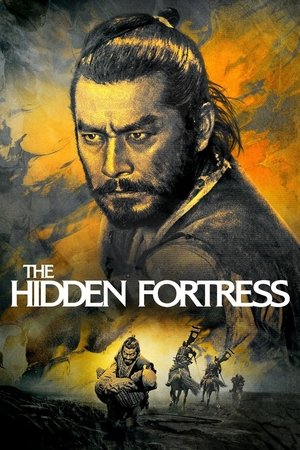 8.0
8.0The Hidden Fortress(ja)
In feudal Japan, during a bloody war between clans, two cowardly and greedy peasants, soldiers of a defeated army, stumble upon a mysterious man who guides them to a fortress hidden in the mountains.
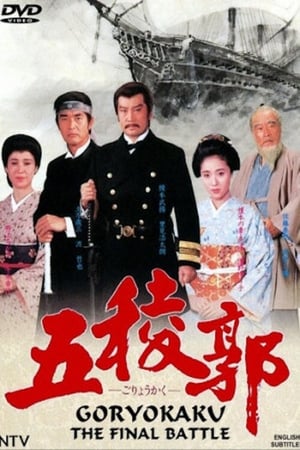 0.0
0.0Goryokaku(ja)
After the fall of the Tokugawa Shogunate, there was a series of battles fought while the former supporters of the Tokugawa shogunate retreated to the north where they actually started a sovereign nation that was recognized by more than one European country. Survivors of the Shinsengumi were among the followers of Enomoto Takeaki who took them to the northernmost island of Ezo where they fought their final battle at the star shaped fort, Goryokaku. The Japanese Civil Wars fought in the name of the emperor signaled the complete end of the feudal system and Japan’s entry into the modern world as those brave samurai tried to halt progress and learned that the age of modern warfare and weaponry had passed them by. Swords were no match for rifles and cannons, nor was any man a match for the power of the imperial flag. Japanese loyalty to the emperor has long defined the nation and culture despite the changing times.
 7.7
7.7Rurouni Kenshin: The Final(ja)
In 1879, Kenshin and his allies face their strongest enemy yet: his former brother-in-law Enishi Yukishiro and his minions, who've vowed their revenge.
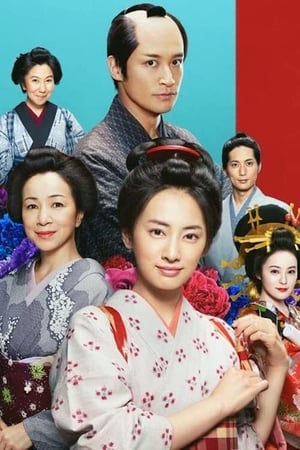 8.0
8.0Devoted Cookbook(ja)
The film is set in Edo period. As an orphan child Mio starts working at a restaurant in Osaka where she learns how to cook. When she turns 18, she moves to Edo (today's Tokyo) where she opens her own restaurant.
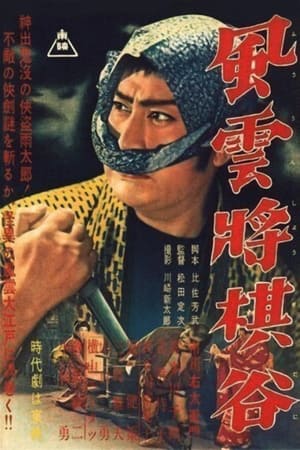 0.0
0.0Golden Valley(ja)
A samurai thief fights a gang of ghostly thieves using scorpions for treasure in the unexplored Shinano region, which is guarded by a descendant of the Heike clan.
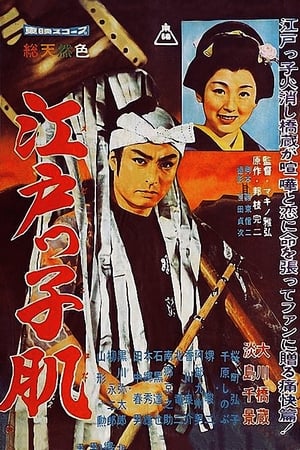 0.0
0.0Edo Purebreed(ja)
Action and adventure abound in this story of friendship between two rival firefighters, Kichigoro and Jirokichi in old Japan. When Mukai Sadayu, the vassal of Kaga Clan's accounting officer, Shinagawa Daihachi demands that Omon serve him tea in his mansion and she refuses, the clan's samurai abduct her setting in motion a series of events that will bring the two firefighters into a world of danger and excitement. Jirokichi, leader of the Edo firefighting team "Ha-gumi" must first rescue Omon from the clutches of the vile Kaga Clan's retainers.
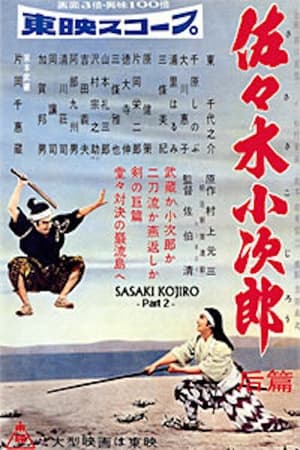 7.0
7.0Sasaki Kojiro, Part 2(ja)
The conclusion of the story of famed swordsman, Sasaki Kojiro. After surviving a series of daring adventures, Kojiro seems to have finally discovered the ultimate happiness in life when he is reunited with Tone, the love of his life. However, his days of happiness are overshadowed by an upcoming duel with his fateful enemy Miyamoto Musashi.
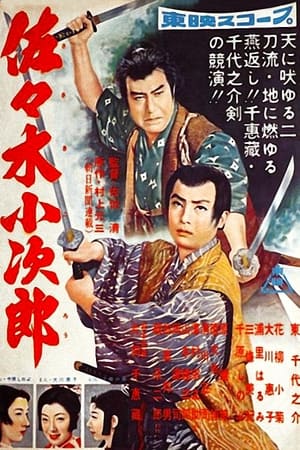 6.0
6.0Sasaki Kojiro(ja)
Ronin Sasaki Kojiro pursues his ultimate goal of becoming a master swordsman. Along the way he encounters another great swordsman, Miyamoto Musashi.
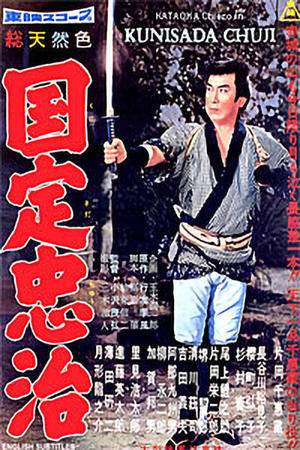 5.2
5.2Kunisada Chuji(ja)
Kunisada Chuji is a common folk hero who looks out for poor people in the country who are at the mercy of corrupt officials. Intent on fulfilling a dying wish from one of his henchmen, Asataro, to find a decent home for his young nephew, Chuji descends from his hide-out in the mountain, and heads to the city in spite of numerous dangers that await him there.
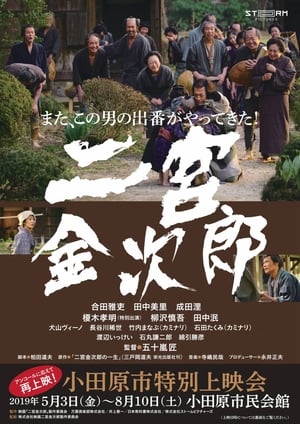 0.0
0.0Ninomiya Kinjirou(ja)
Ninomiya Kinjirou is a biopic follows the life of the eponymous character, an 18th century peasant boy who worked to rescue over 600 poor villages and hamlets from financial ruin by developing new economic policies.
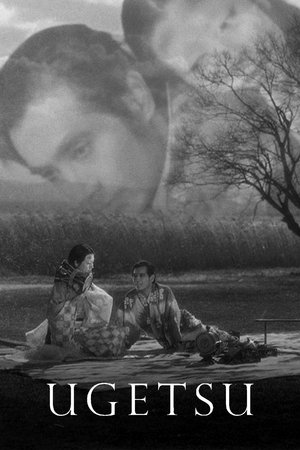 8.0
8.0Ugetsu(ja)
In 16th century Japan, peasants Genjuro and Tobei sell their earthenware pots to a group of soldiers in a nearby village, in defiance of a local sage's warning against seeking to profit from warfare. Genjuro's pursuit of both riches and the mysterious Lady Wakasa, as well as Tobei's desire to become a samurai, run the risk of destroying both themselves and their wives, Miyagi and Ohama.
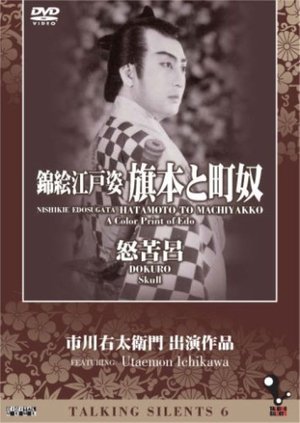 7.2
7.2A Color Print of Edo(ja)
The Color Print of Edo is a 1939 black and white Japanese silent film with benshi accompaniment directed by Kazuo Mori. It is a cheerful period drama, sprinkled with comical scenes and tells the story of a loyal and handsome Edo period servant who fights to help his older brother marry the woman he loves. The star of this film Utaemono Ichikawa gained enormous popularity for his portrayal of a cheerful and chivalrous man.
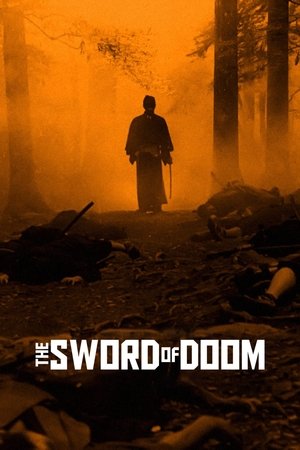 7.7
7.7The Sword of Doom(ja)
Ryunosuke, a gifted swordsman plying his trade during the turbulent final days of Shogunate rule, has no moral code and kills without remorse. It’s a way of life that leads to madness.

